In recent weeks, Hungary has become one of the symbols of the opposition's clash with the new Netanyahu government and its plans to reform the judicial system. In the demonstrations and in the TV studios, they talk about the "Hungarianization" of Israel and compare Netanyahu to the Prime Minister of Hungary, Viktor Orban. It is presented as an unrestrained political leader who consistently works to destroy Hungarian democracy and replace it with an authoritarian regime, a kind of democracy.
Hungary is described as a country where the independence of the judicial system was eliminated through a constitution adopted under the Orbán government in 2011.
In the past, the opposition has already attacked Netanyahu for his good relations with Orban, who has been accused of anti-Semitism.
Legislative initiatives of the conservative Hungarian government, which has been in office continuously since 2010, which touched the fields of law, the media or the rights of the LGBT community, and provoked much criticism from the European Union, have over the years strengthened the anti-urban campaign and the image of Hungary under his rule as a country that is increasingly sinking into darkness Medieval times.
But, is this indeed the situation in Hungary and can it even be compared to Israel?
crossed the lines
Katlin Zili's biography shows the many changes Hungary has undergone in recent decades.
Zili, 66, a doctor of law, was considered one of the leading figures in the Hungarian left camp.
It has been in the opposition for about 13 years and is finding it very difficult to create an alternative to the rule of Orban and his party, Fidesz, who won the last four elections with a majority of two-thirds of the parliament's delegates, which allowed Orban to introduce reforms that correspond to his conservative worldview with ease.
At the beginning of her professional and political career, in the 1980s, Zilli was a member of the "Hungarian Socialist Workers' Party" - the ruling communist party.
With the fall of the communist regime in 1989, she was one of the founders of the "Hungarian Socialist Party", which succeeded the previous ruling party and adopted a social democratic appearance.
When the socialists returned to power in the 2002 elections, Zilli was appointed Speaker of the Parliament.
"The independence of the judges is guaranteed."
Katelyn Jily, photo: Eldad Beck
In 2005, she was the candidate of her party for the presidency of Hungary, but did not win the nomination because of intrigues in the coalition.
She abandoned the Socialist Party shortly before its crushing defeat in the 2010 elections and was elected to parliament as an independent candidate.
As such, she joined the "National Consultation" body, established by Orban for the purpose of drafting the new constitution.
The socialists, from the opposition benches, opposed the initiative to draw up a new constitution and boycotted the debates on it.
Zilli has since established two parties, the "Social Union" and the "Community for Social Justice", which did not pass the 5% threshold.
After the "refugee crisis" in 2015, Zilli began to voice public support for Orban's positions on the issue of curbing mass immigration, although she is not a member of his party.
"The constitution clearly talks about the separation of authorities in the country and creates checks and balances. The criticism comes mainly from the opposition since society gave the ruling parties a majority of more than two-thirds, that is, a constitutional majority. This is a criticism that we like to hear on the European stage, and it hides the opposition's ineffectiveness."
"It was important to me - for me and for Hungarian society - that we have a modern and good constitution (the nomenclature in Hungarian is 'basic law') for our country", Zili explains in an interview with "Israel this week" her decision to turn her back on the political camp she came from and take part in the formulation of the constitution with who was then a political opponent for her.
"The main consideration in my eyes was the good of the country.
After the victory of the right in 2010, the opposition refused to participate in the process of drafting the constitution.
At that time, a constitution adopted under the communist regime in 1949 and amended several times was still in force.
That is, 20 years after the democratic revolution in Hungary, a constitution of a completely different regime was the basis of our society and of an entire legal system.
It was not sustainable.
Therefore, it is understandable that the right-wing parties in power used the two-thirds majority they had in parliament, which was required according to the old constitution, to change the constitution.
"The country needed a completely new social contract that would give Hungarians a stable foundation in the 21st century. The new constitution provides completely new regulation, also in connection with basic spiritual principles, which mean modern cohesion in the structure of a country with a 1,000-year history. The basic law also includes sections that are important to us today , which, in addition to the separation of authorities, regulate the existence of the state."
Since the adoption of the constitution, for about a decade, Hungary has been under criticism for losing its democratic character in favor of an authoritarian regime. Does this review reflect the situation in Hungary?
"There is no authoritarian regime in Hungary. Hungary has not lost its democratic character. This is a claim heard from the opposition, which tries to hide its weakness in Hungary and abroad. The reason why the opposition constantly turns to the international neoliberal community is that it is unable to make its policies acceptable in society The Hungarian. The fact that since 2010 the coalition of Fidesz and the Christian Democrats led by Viktor Orbán has managed to obtain the support of more than two-thirds of the electorate in four election cycles speaks for itself. I emphasize again: this criticism is a criticism of a very divided opposition, which is unable to communicate with society and regain the public's trust and trap it in its impotence trap."
What is the current influence of parliament on the legal system? How are judges appointed here?
"The courts carry out their activities on the basis of the legislation of the Parliament. It is the Parliament that elects the President of the Constitutional Court, being the most senior official at the head of the judicial hierarchy, as well as the President of the Supreme Court. The other judges are appointed by the President of the Republic. The independence of the judges is guaranteed at the same time In accordance with the requirements of the constitution and the method of their election. Our constitution explicitly states that the judges are independent and subject only to the law and judges cannot be guided in their work. Judges cannot be members of a party or involved in political activity."
returned to power in a big way.
Urban, photo: AFP
What is the effect of the Constitutional Court on laws passed in Parliament and on government decisions?
"I can quote the relevant sections of the constitution, which refer to the role of the constitutional court as a guarantee for the protection of the constitution. Therefore, it is possible to bring before the constitutional court for discussion laws that have been adopted but have not yet entered into force either at the initiative of a judge or on the basis of a constitutional complaint that can come from the government, members of parliament, The Attorney General or the President of the Supreme Court. The regulation also ensures that the Constitutional Court will not only examine the compatibility of new laws with the Constitution but also if these laws are in conflict with international treaties."
Is it necessary to change the separation of powers that currently exists in the face of pressures on the matter from the European Union?
"The constitution speaks clearly about the separation of authorities in the country and creates checks and balances. The criticism, as I have already mentioned, comes mainly from the opposition since society gave the ruling parties a majority of more than two-thirds, that is, a constitutional majority, even in the last elections in 2022. This is the reason why they express Criticism of the rule of law and democracy. This is a criticism that people like to hear from the European stage, and it hides the ineffectiveness of the opposition."
"Hungary is not Israel"
I meet Dr. Gustav Beinert, a lawyer, consultant to international companies, formerly one of the senior officials of the Hungarian Football Association and a member of the FIFA Legal Committee, at the "Groupama" stadium of the top club Franzvarsz, who has already won 33 Hungarian championships in football and is at the top this year as well The local Premier League table, apparently on its way to another title.
Beinert, a Jew, is also a member of the board of the club, which was founded in 1899 and whose first president - Franz Springer - was Jewish.
However, Franzvarsz is not defined by football fans as a "Jewish club" of Budapest.
This title was reserved for a rival team, M.T.K.
"There are many differences between Hungary and Israel," he states, "we must refer to the Hungarian historical background.
In 1945, Hungary was liberated from the Germans and occupied again by the USSR.
For decades Hungary was not a free country.
Admittedly, after the anti-communist uprising in 1956, Hungary was considered more liberal compared to the other Eastern European countries.
They called the phenomenon "communism-goulash" - relative flexibility in the economic field, complete inflexibility in foreign policy and the military.
In 1989, Hungary was the first to contribute to the fall of the Berlin Wall, when it allowed refugees from East Germany to pass through it to the West.
When the political system changed in 1990, with the fall of the communist regime, the communist infrastructure remained in place - especially the left's absolute grip on the economy and the media, since the political transformation in Hungary from dictatorship to democracy was non-violent and carried out through negotiations between the parties.
"Hungary is still very cheap."
Dr. Gustav Beinert, photo: Eldad Beck
"The first democratic government dealt with problems in many areas - economy, society, politics. When it was replaced after four years, the communists and socialists returned to power for the first time. They, of course, hardly touched the existing monopoly of the left, especially not in the media. When Orban was first elected prime minister In 1998, he began to change many things, although he was unable to complete processes since he lost the elections in 2002 and the socialists returned to power.
The defeat to the left at the time was received with great shock in the center-right camp, because Orban's term of office was considered successful and almost all polls expected him to win another victory.
In 2006 there was the famous tape incident, when the socialist prime minister at the time was recorded saying that his government was lying to the public.
This caused an earthquake, which resulted in Orban's return to power in 2010 with a two-thirds majority.
Since then, in the elections of 2014, 2018 and 2022, Orban maintained such a majority in the elections.'
"Hungary has been attracting more foreign investment in recent years than before. There are huge investments coming from Germany, China, the USA. The big international companies are happy to work here. In terms of foreign investment in Hungary, the foreign companies are very satisfied with the government policy and employment laws. They have no problem. On the contrary"
Beinert emphasizes that following a review by the "Venice Commission" - a body that advises the European Union on constitutional changes - certain sections of the constitution were changed, but not the core of the document.
Since 2021, the "Venice Commission" has published 21 critical opinions on amendments to the constitution and reforms that the Orban government passed, including the "Child Protection Law" which prohibits the introduction of content about sexual orientation and gender identity into the education system and the definition of a family in which the mother is a woman and the father is a man as the basis for the nation's survival, change The election system during the state of emergency declared in Hungary due to the corona epidemic without consultation with the people and in haste, and issues related to the status and salary of the judges.
These opinions formed the basis of the European Union Commission's decision to activate for the first time Article 7 of the Union Treaty, which allows the imposition of sanctions on a member state that violates the fundamental values of the Union, and to freeze urgent aid funds amounting to billions of euros to Hungary.
In view of Hungary's difficult economic situation, which worsened with the Ukraine war,
"The current conflict between the European Union and Hungary revolves around the assumption on the part of the bureaucracy in Brussels that there is a situation of democratic devaluation in Hungary, devaluation of the independence of the courts and accusations of corruption in the funds that come from the Union," explains Beinert, "to this must be added a personal element: we have a very charismatic prime minister, who serves for many years.
This is his fifth term in office, and he is not ready to accept that large countries in the European Union, such as Germany and France, will patronize small countries.
"When there was the migration crisis, Orban was the only European leader who had completely different views on the issue, contrary to the German 'culture of hospitality'. This created many conflicts with the European Union, especially since after a while people realized that Orban was right in his opposition. Hungary is a full member of the European Union and in NATO, and we are not ashamed to express our opinion, even when unanimous agreement is needed on important issues. This frustrates certain parties. The Hungarian government defends what it sees as Hungary's national interests."
Investments are flowing
Beinert mentions that Hungary was also under a major attack in 2012, after the adoption of the new media law designed for the government's approach to create competition in the media market and ensure that there is political balance in it.
In the latest report on the freedom of the press by the organization "Reporters Without Borders", which is based in Paris, Hungary is placed 85th out of 180 countries.
Israel, by the way, is in 86th place.
The report emphasizes the control of Orbán and his party not only in Hungarian public broadcasting but also in the "communication empire", the "Central European Press and Communication Foundation", which operates about 500 national and local media outlets "serving the government".
However, the report emphasizes that independent media outlets hold central positions in the media market in the national arena, even though they are subject to political, economic and regulatory pressures.
"Today, the media in Hungary is much more diverse and balanced," claims Beinert, "the opposition has its own newspapers, its own TV stations.
The public has access to many different opinions, although extreme opinions - from the right and the left, are prohibited.
There are large demonstrations in the streets against the government.
At the time there were demonstrations against the internet tax, which was planned by the government and was shelved.
Now the teachers are protesting for a raise.
It is a fully democratic country.
You can criticize the government in the media and on the street.
"The opposition in Hungary is very divided. But three years ago in the municipal elections, the opposition united and managed to defeat Fidesz in Budapest and other large cities. Thus, it cannot be said that the governing system in Hungary is monolithic. What is difficult for the opposition to accept and for liberals in Europe to swallow, is that for the fourth time in a row the government This party receives a two-thirds majority in free and democratic general elections. This majority provides a great deal of support for the Prime Minister and great flexibility in running the country.
"Orban was the only European leader who had completely different views on the migration crisis, contrary to the German 'culture of hospitality'. This created many conflicts with the European Union, especially since after a while people realized that Orban was right in his opposition"
"This is a big difference between Hungary and many other countries, including Israel, which has a special political and parliamentary structure. The government also instituted referendums. The population is asked for their opinions on various issues. These are not legally binding referendums, but political referendums, a means that the government uses to address the population directly between elections. For example, the recent referendum on the sanctions against Russia. The government initiated a referendum to find out the people's position. 1.4 million people participated in the referendum (about 17% of all those with the right to vote in Hungary alone, 97% of the participants expressed opposition to sanctions on (Russia). This result gave the government public legitimacy in its opposition to the sanctions.'
Are international companies boycotting Hungary because of the claims that it has become less democratic?
"Absolutely not. In recent years, Hungary has attracted more foreign investment than before. There are huge investments coming from Germany, China, the USA. The big international companies are happy to work here. The German 'Bosch' opened a huge center for research and development, 'Audi' also invests heavily in the field of research and development, BMW is building a large factory in eastern Hungary for the production of electric cars. Chinese investors, in competition with Germany, are investing here in the development of batteries for cars. In terms of foreign investment in Hungary, the foreign companies are very satisfied with government policy and employment laws. They have no problem. On the contrary "Hungary is still cheaper than other countries, the employment laws here are very encouraging for investments and the workforce is talented."
Israeli tourists also continue to flock to Hungary - mainly to Budapest, despite the opposition's descriptions of the horror of what is apparently happening here.
Since the end of the corona virus, hundreds of thousands of Israelis have flocked to Hungary.
"Budapest has become one of the safest cities in Europe for Jews and Israelis," says Rabbi Shlomo Kobus, a Chabad rabbi, rabbi of the United Jewish Community and Hungary's chief military rabbi.
"The government's pro-Israel attitude affects the general atmosphere."
Rabbi Shlomo Kobus, photo: Eldad Beck
"Although many Hungarian Jews are identified with the left and liberal parties, there is no mass departure of Jews from the country.
The number of annual anti-Semitic attacks in extreme cases is 50-60, mainly verbal attacks.
This does not mean that there are no anti-Semitic views among the Hungarian population.
The government's position is not perfect either: it is difficult for Hungarians to swallow their part in the Holocaust and the official anti-Semitism of the 1920s and 1930s before World War II.
"But it was precisely under Orban that the government made significant progress in the fight against anti-Semitism: a law was passed against Holocaust denial, at our initiative a reference was inserted into the constitution stating that harming the dignity of minorities is a civil offense, we went through the school textbooks together and made recommendations for corrections regarding the contents concerning Judaism, the part of the Jews in the German existence , the Holocaust and modern Israel. Two-thirds of our recommendations were adopted. The government's pro-Israel attitude affects the general atmosphere. Orban does not hide his good relationship with Israel. He even stated on one of his weekly radio broadcasts that Israel is an example for Hungary."
were we wrong
We will fix it!
If you found an error in the article, we would appreciate it if you shared it with us


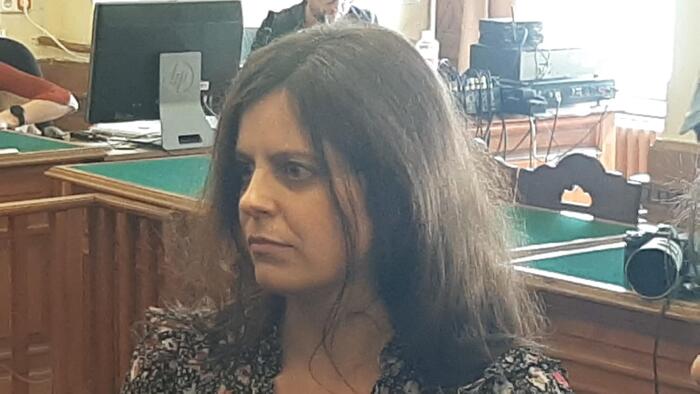

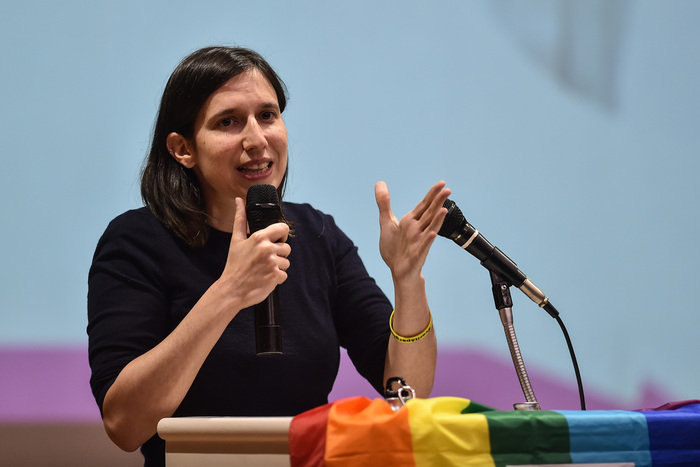
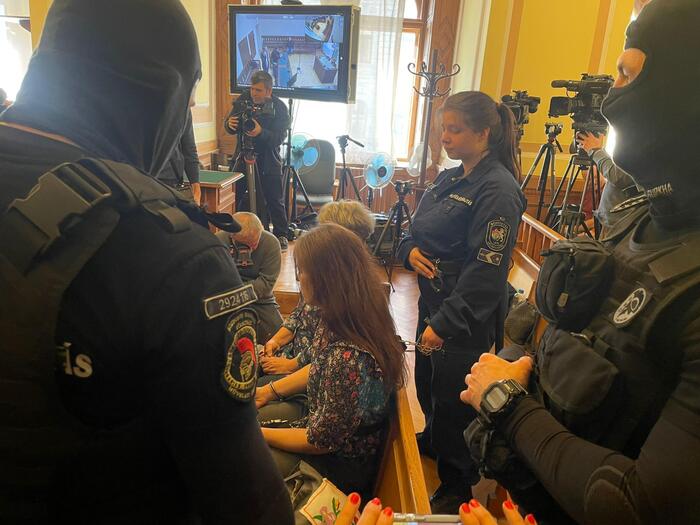

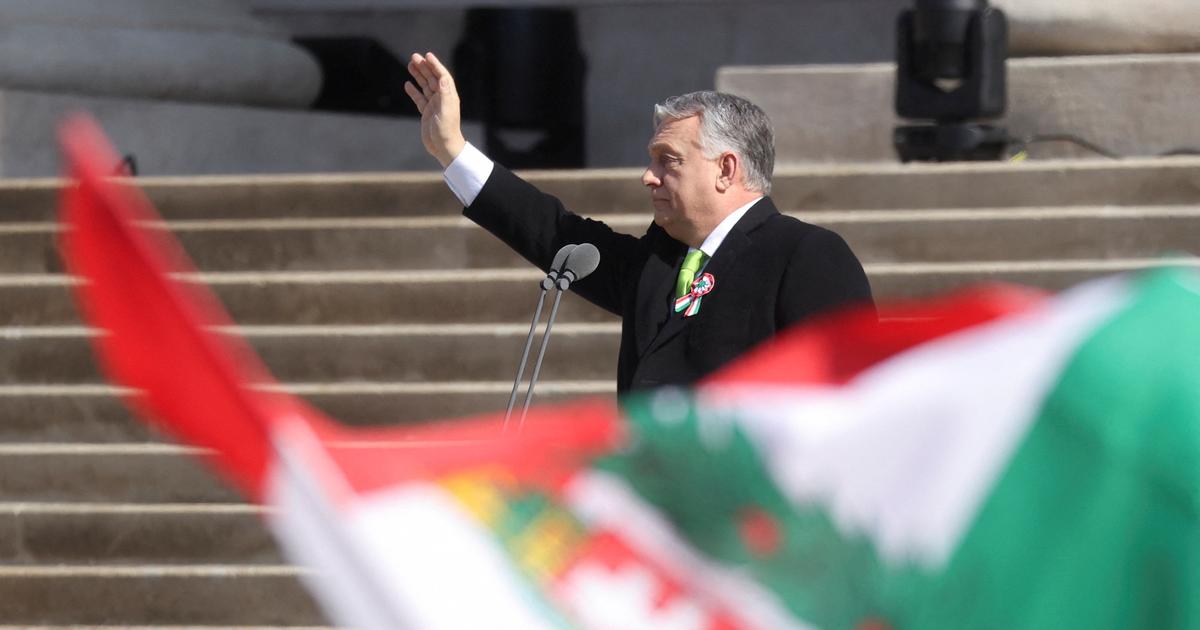

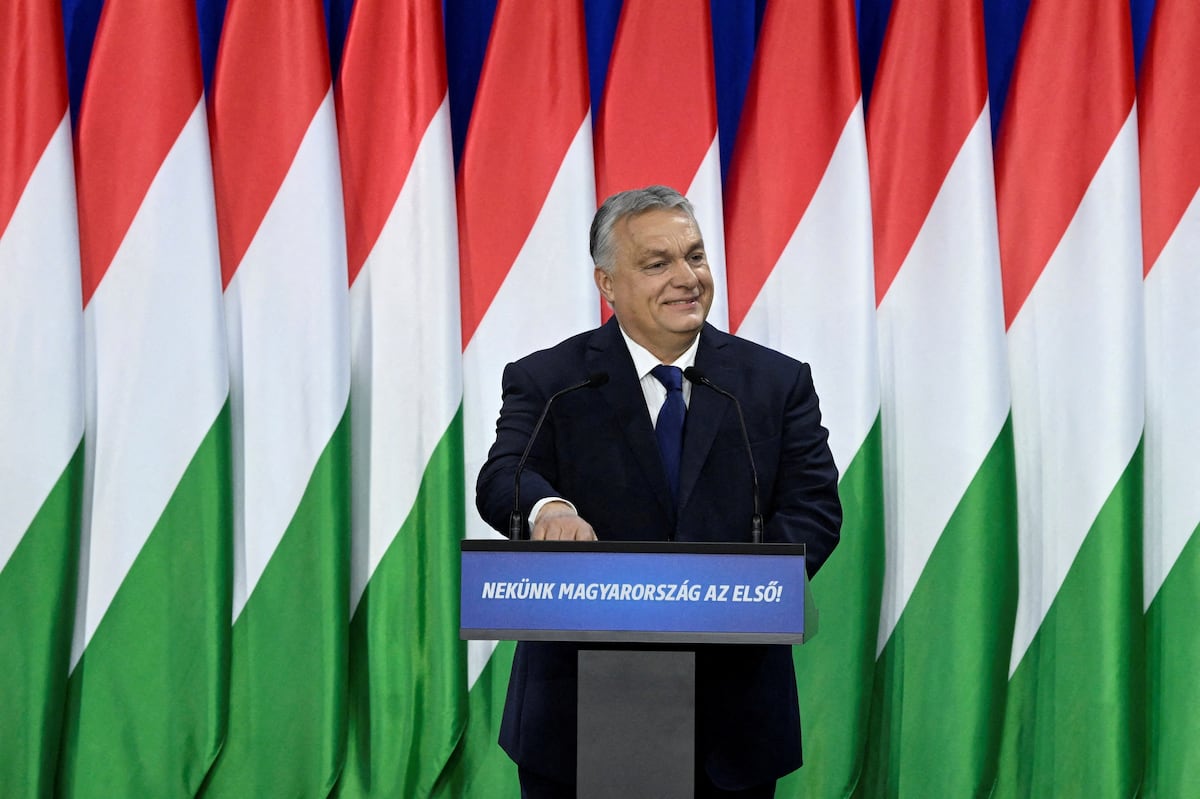



/cloudfront-eu-central-1.images.arcpublishing.com/prisa/KMEYMJKESBAZBE4MRBAM4TGHIQ.jpg)

